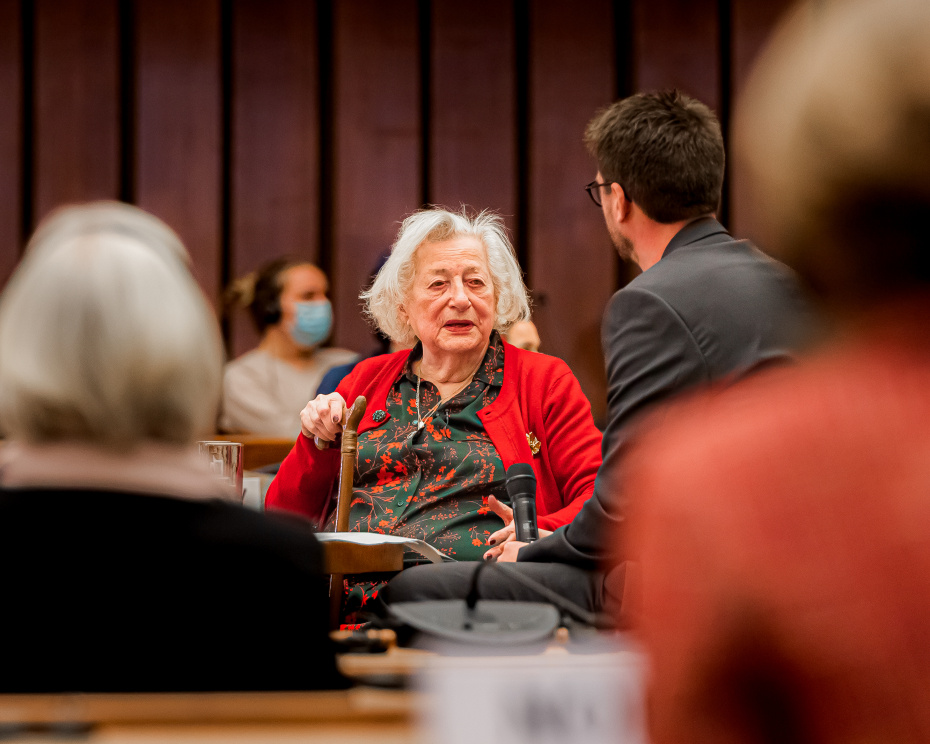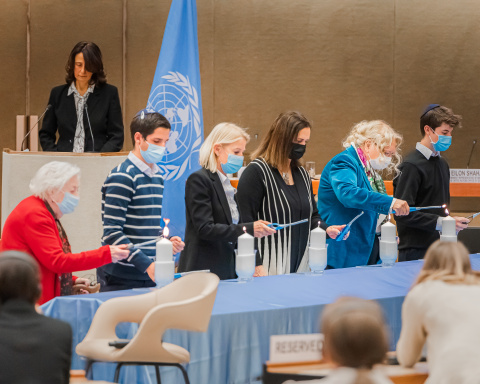Breadcrumb

Holocaust remembrance: education key to reversing the trend of intolerance

In a ceremony held under the theme “Memory, dignity, and justice”, the Director-General of the United Nations Office at Geneva, Tatiana Valovaya, said we owe it to victims of the Holocaust and their families to promote tolerance, human values and peaceful co-existence in our societies, and prove “that diversity is a richness, not a threat.”
“We owe it to our common future,” said the head of the United Nations in Geneva to more than 120 diplomats, representatives of non-governmental organizations and members of the public who attended the annual commemoration at the Palais des Nations to mark the International Day of Commemoration in memory of the victims of the Holocaust.
The Permanent Representative of Israel to the UN in Geneva, Ambassador Meirav Eilon Shahar, and the Head of the European Union Delegation to the UN in Geneva, Ambassador Lotte Knudsen, also joined Director-General Valovaya to appeal for tolerance and the need to fight rising antisemitism, racism and discrimination in the world.

Holocaust no fabrication
Holocaust survivor Emma Adjadj was a teenager when she lost her mother, three siblings and other family members to the Nazi death camps.
As six candles burned quietly behind her to honour the memory of the six million victims of the Holocaust, Ms Adjadj, who today is 92, said education was all too important to teach today’s youth about the horrors of the Second World War. She said she had been disappointed by young people’s indifference the first time she went to a school to recount her story.
“We have all the facts to prove that what happened really did, and that it’s not just fabrication,” said the resident of Marseille, alluding to the lies often peddled by Holocaust deniers.
Mrs Adjadj’s call for more education about the Holocaust was echoed by Director-General Valovaya. She said education was key to helping young generations to become active and responsible global citizens who valued “human dignity and respect for all” and rejected antisemitism and other forms of prejudice and discrimination that could lead to genocide.
Turning a blind eye no more
Calling xenophobic and racist comments, offline and online, the “scourge of our times”, the head of UN Geneva added that it was not enough to use slogans like “never again” when intolerance was part of our everyday lives.
“Too often we allow ourselves to turn a blind eye and remain indifferent to the incidences of prejudice and violence based on religion, race, ethnicity, nationality or immigration status. This trend must be reversed to prevent history from repeating itself.”
In addition to the more than 120 people who attended the ceremony at the Palais des Nations, hundreds more tuned in to the UN webcast, while more followed the commemoration on UN Geneva’s Facebook account.
Holocaust Remembrance Day is celebrated annually on 27 January, the date the Russian Army liberated the Auschwitz-Birkenau concentration camp in 1945.
